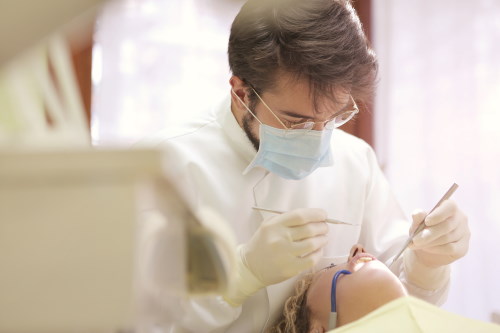Cancer that develops inside your mouth, called oral cancer, will likely strike about 54,000 people in the U.S. this year, according to the American Cancer Society, accounting for approximately 3% of all cancers diagnosed annually.
BREAKING: One Simple Trick Removes Eye Bags & Lip Lines in Seconds
So, it’s critical to watch for warning signs on your tongue, the floor of your mouth, your gums, your palate, or the inside of your cheeks or lips. However, in some instances of oral cancer, you might not notice symptoms. Or you might assume symptoms are related to other, less serious health problems.
What are some symptoms of oral cancer?
These are some symptoms of oral cancer that can be mistaken for other conditions:
- You could have a crack inside your mouth and think you bit your cheek or cut your mouth on a sharp piece of food
- You could have a growth in your mouth and mistake it for a mouth sore
- You could see blood in your saliva and think you caused it when you were brushing or flossing your teeth
- You might have trouble speaking or chewing and think it comes from grinding or clenching your teeth at night
- You may not notice a white or red patch inside your mouth, especially if it’s not painful
These signs don’t necessarily mean you have oral cancer, but it’s crucial to have them evaluated.
“Most minor issues inside your mouth heal quickly. So, if you notice a worrisome symptom that lasts for more than a week or two, you should see your primary care physician or dentist as soon as possible,” said Thomas Shellenberger, MD, a surgical oncologist specializing in head and neck cancers at Anderson Cancer Center in Arizona.
What factors influence your risk of oral cancer?
There are several factors that can increase your risk for oral cancer. These include:
- Smoking or use of tobacco products
- Heavy alcohol use
- Having multiple sexual partners which can increase your risk of developing human papillomavirus (HPV), an infection linked to oral cancers.
- Excessive sun exposure
In addition, there are other factors—that aren’t within your control—that can increase your risk of oral cancer:
- A family history of cancer
- Age—your risk of oral cancer increases as you get older
- Gender—oral cancer is more common in men
- Past sun exposure (for example, when you were young)
Regardless of your risk factors, no one is immune to oral cancer, so see your dentist regularly. Your dentist should screen you for oral cancer as part of your routine exam.
How can oral cancer be diagnosed and treated?
If your dentist or doctor suspects oral cancer, they can biopsy the suspicious area to see if it is cancerous.
Once diagnosed, oral cancer can be treated with surgery, radiation and chemotherapy. But early diagnosis is key. “When oral cancer is diagnosed early, you have better chances that the treatment will be successful and you won’t lose any mouth functioning,” Dr. Shellenberger said. Whereas advanced oral cancer can be life threatening.
TRENDING: Simple Solution To Fix Toenail Fungus Overnight
The bottom line
Oral cancer, which develops inside your mouth, has symptoms that you could mistake for other, less serious conditions. Be sure to see your doctor or dentist if anything unusual develops inside your mouth and lasts for more than two weeks. If you need to find a health care provider who can evaluate your symptoms.








